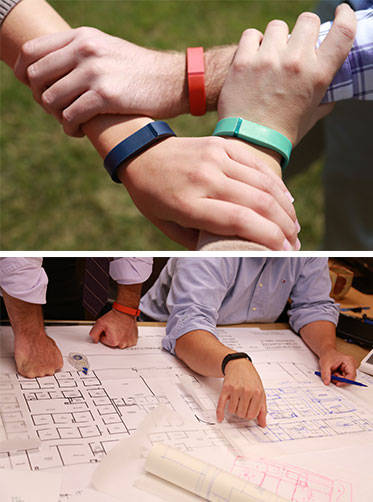
The step counter is pretty cool, and very sobering, but I couldn’t wait to get my Fitbit® so I could start tracking my sleep. Until I read the aforementioned article, I didn’t realize how much sleep affected my daily performance, but I knew that I wanted to track it. Architects are constantly striving for the best design possible, sometimes leading to long days and late nights. In this industry and in our culture, sleep is sometimes pushed to the back burner so we can attempt to get more done. In reality, sleep drives performance, becoming the catalyst of a productive work day.
In his article, James Clear cites a study done by researchers at the University of Pennsylvania and Washington State University which determined that the mental performance of individuals who sleep six hours a night for two weeks equates to the mental performance of individuals who remain awake for 48 hours straight. Even worse, those who were sleeping only six hours each night did not notice their performance was decreasing.
In a creative industry like architecture, performance of the mind is just as important as staying healthy. Tracking steps is important, but I will also be using my Fitbit® to track sleep so I can produce the best work possible every day. I strive for eight. How many hours do you get?
Read more insights from Laura on her blog.

